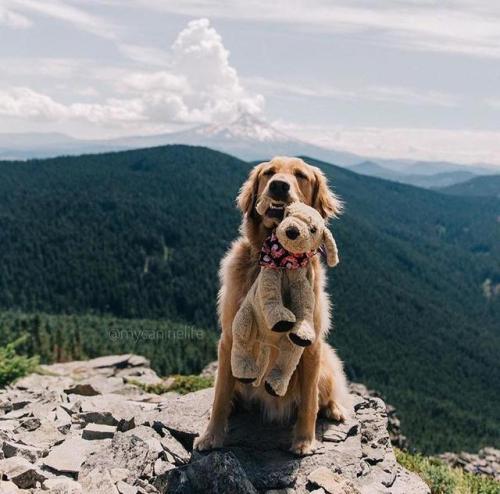Ocrim1967 - Senza Titolo
More Posts from Ocrim1967 and Others
Your Gut in Space
Finding the Right Balance for the Microbiota
Trillions of microorganisms live on and in the human body, many of them essential to its function and health. These organisms, collectively known as the microbiota, outnumber cells in the body by at least five times.

Microorganisms in the intestinal tract, the gut microbiota, play an especially important role in human health. An investigation on the International Space Station, Rodent Research-7 (RR-7), studies how the gut microbiota changes in response to spaceflight, and how that change in turn affects the immune system, metabolic system, and circadian or daily rhythms.

Research shows that the microbiota in the mammalian digestive tract has a major impact on an individual’s physiology and behavior. In humans, disruption of microbial communities has been linked to multiple health problems affecting intestinal, immune, mental and metabolic systems.

The investigation compares two different genetic strains of mice and two different durations of spaceflight. Twenty mice, ten of each strain, launch to the space station, and another 20 remain on the ground in identical conditions (except, of course, for the absence of gravity). Mice are a model organism that often serves as a scientific stand-in for other mammals and humans.

Fecal material collected from the mice every two weeks will be examined for changes in the gut microbiota. Researchers plan to analyze fecal and tissue samples after 30 and 90 days of flight to compare the effects of different durations of time in space.

With a better understanding of relationships between changes such as disruption in sleep and an imbalance of microbial populations, researchers can identify specific factors that contribute to changes in the microbiota. Further studies then can determine proactive measures and countermeasures to protect astronaut health during long-term missions.

Make sure to follow us on Tumblr for your regular dose of space: http://nasa.tumblr.com.


Gif by Satiricon
Our Favorite Valentines Throughout the Universe
Today is Valentine’s Day. What better way to express that you love someone than with an intergalactic love gram? Check out some of our favorites and send them to all of your cosmic companions:
Your love is galactic

The Hubble Space Telescope revolutionized nearly all areas of astronomical research — and captured some truly lovely images. Here, a pair of intersecting galaxies swirl into the shape of a rose as a result of gravitational tidal pull. What type of roses are you getting for your love — red or galactic?
I think you’re n{ice}

IceBridge is the largest airborne survey of Earth’s polar ice ever flown. It captures 3-D views of Arctic and Antarctic ice sheets, ice shelves and sea ice. This lovely heart-shaped glacier feature was discovered in northwest Greenland during an IceBridge flight in 2017. Which of your lover’s features would you say are the coolest?
You’re absolutely magnetic

Even though we can’t see them, magnetic fields are all around us. One of the solar system’s largest magnetospheres belongs to Jupiter. Right now, our Juno spacecraft is providing scientists with their first glimpses of this unseen force. Is your attraction to your loved one magnetic?
You’re MARS-velous

This heart-shaped feature on the Martian landscape was captured by our Mars Reconnaissance Orbiter. It was created by a small impact crater that blew darker material on the surface away. What impact has your loved one had on you?
I <3 you

From three billion miles away, Pluto sent a “love note” back to Earth, via our New Horizons spacecraft. This stunning image of Pluto’s “heart” shows one of the world’s most dominant features, estimated to be 1,000 miles (1,600 km) across at its widest point. Will you pass this love note on to someone special in your life?
Light of my life

Our Solar Dynamics Observatory keeps an eye on our closest star that brings energy to you and your love. The observatory helps us understand where the Sun’s energy comes from, how the inside of the Sun works, how energy is stored and released in the Sun’s atmosphere and much more. Who would you say is your ray of sunshine?
Do any of these cosmic phenomena remind you of someone in your universe? Download these cards here to send to all the stars in your sky.
Want something from the Red Planet to match your bouquet of red roses? Here is our collection of Martian Valentines.
Make sure to follow us on Tumblr for your regular dose of space: http://nasa.tumblr.com









(Source)

Pulsar planets are planets that are found orbiting pulsars, or rapidly rotating neutron stars. The first such planet to be discovered was around a millisecond pulsar and was the first extrasolar planet to be confirmed as discovered.
source





CAPE CANAVERAL, Fla. – Space shuttle Discovery lifts off Launch Pad 39A in a billowing swirl of smoke and steam at NASA’s Kennedy Space Center in Florida, beginning its final flight, the STS-133 mission. Launch to the International Space Station was at 4:53 p.m. EST.
Credit: NASA










Yes, The Apollo Moon Landings Really Did Happen
“2.) We have extensive photographic and video evidence from the Apollo missions themselves. How could the lunar module have ascended back off of the surface and returned the astronauts back to the orbiting module which would take them back to Earth? Exactly like the video above shows, from direct Apollo 17 footage. The hypergolic propellant system isn’t based off of a single explosion, but rather a constant thrust of ~16,000 Newtons that was steadily delivered over a timespan of about 5 minutes. There’s no exhaust trail because there’s no lunar atmosphere, but you can track the spacecraft’s accelerated motion for yourself with even basic modern software.”
We’re less than a month away from the official 50th anniversary of the first crewed Moon landing, and there are all sorts of good reasons to celebrate. But for most of us alive today, the final Apollo mission occurred before we were born. Perhaps because of this distance between then and now, there are a great many people who don’t believe that the lunar landings ever occurred. While you might (rightfully) dismiss this position as an uninformed conspiracy, you can also immediately point to a slew of scientific evidence to demonstrate that yes, we did go to the Moon, and here is an enormous suite of data to back that up. From thousands of photographs to suites of instruments and scientific data to an examination of the landing sites today, everything lines up.
Come get the evidence for yourself, and don’t let someone’s conspiracy-minded ravings lead you astray.









(Source)










It’s International Asteroid Day!
(Large Asteroid Impact Simulation)
Asteroid Day (also known as International Asteroid Day) is an annual global event that aims to raise awareness about asteroids and what can be done to protect the Earth, its families, communities, and future generations. Asteroid Day is held on the anniversary of the June 30, 1908 Siberian Tunguska event, the most harmful known asteroid-related event on Earth in recent history.
Learn more here
Animation










(Source)
-
 itsmydreamylife liked this · 3 years ago
itsmydreamylife liked this · 3 years ago -
 mindnot-that-much liked this · 3 years ago
mindnot-that-much liked this · 3 years ago -
 cileklimagma reblogged this · 4 years ago
cileklimagma reblogged this · 4 years ago -
 paddy0121 liked this · 4 years ago
paddy0121 liked this · 4 years ago -
 javyhead liked this · 4 years ago
javyhead liked this · 4 years ago -
 light-in-the-dark-sky liked this · 4 years ago
light-in-the-dark-sky liked this · 4 years ago -
 bobek792 reblogged this · 4 years ago
bobek792 reblogged this · 4 years ago -
 automaticdestinytrash reblogged this · 4 years ago
automaticdestinytrash reblogged this · 4 years ago -
 blvvdyindustries reblogged this · 4 years ago
blvvdyindustries reblogged this · 4 years ago -
 blvvdyindustries liked this · 4 years ago
blvvdyindustries liked this · 4 years ago -
 tmcinla liked this · 4 years ago
tmcinla liked this · 4 years ago -
 andromeda1972 liked this · 4 years ago
andromeda1972 liked this · 4 years ago -
 secretspliff reblogged this · 4 years ago
secretspliff reblogged this · 4 years ago -
 secretspliff liked this · 4 years ago
secretspliff liked this · 4 years ago -
 charlesdclimer liked this · 4 years ago
charlesdclimer liked this · 4 years ago -
 jateklancfuresz liked this · 4 years ago
jateklancfuresz liked this · 4 years ago -
 love-rainbows-and-unicorns liked this · 4 years ago
love-rainbows-and-unicorns liked this · 4 years ago -
 ventus67 liked this · 4 years ago
ventus67 liked this · 4 years ago -
 atombombbnnuy liked this · 4 years ago
atombombbnnuy liked this · 4 years ago -
 efechuu liked this · 4 years ago
efechuu liked this · 4 years ago -
 10dozendahliass liked this · 4 years ago
10dozendahliass liked this · 4 years ago -
 scaredfamous reblogged this · 4 years ago
scaredfamous reblogged this · 4 years ago -
 scaredfamous liked this · 4 years ago
scaredfamous liked this · 4 years ago -
 trinityvjk liked this · 4 years ago
trinityvjk liked this · 4 years ago -
 martindiez liked this · 4 years ago
martindiez liked this · 4 years ago -
 kingscrown666 reblogged this · 4 years ago
kingscrown666 reblogged this · 4 years ago -
 kingscrown666 liked this · 4 years ago
kingscrown666 liked this · 4 years ago -
 c0smicdrift3r reblogged this · 4 years ago
c0smicdrift3r reblogged this · 4 years ago -
 c0smicdrift3r liked this · 4 years ago
c0smicdrift3r liked this · 4 years ago -
 metalmouthsoloraver liked this · 4 years ago
metalmouthsoloraver liked this · 4 years ago -
 innerlightawakening reblogged this · 4 years ago
innerlightawakening reblogged this · 4 years ago -
 innerlightawakening liked this · 4 years ago
innerlightawakening liked this · 4 years ago